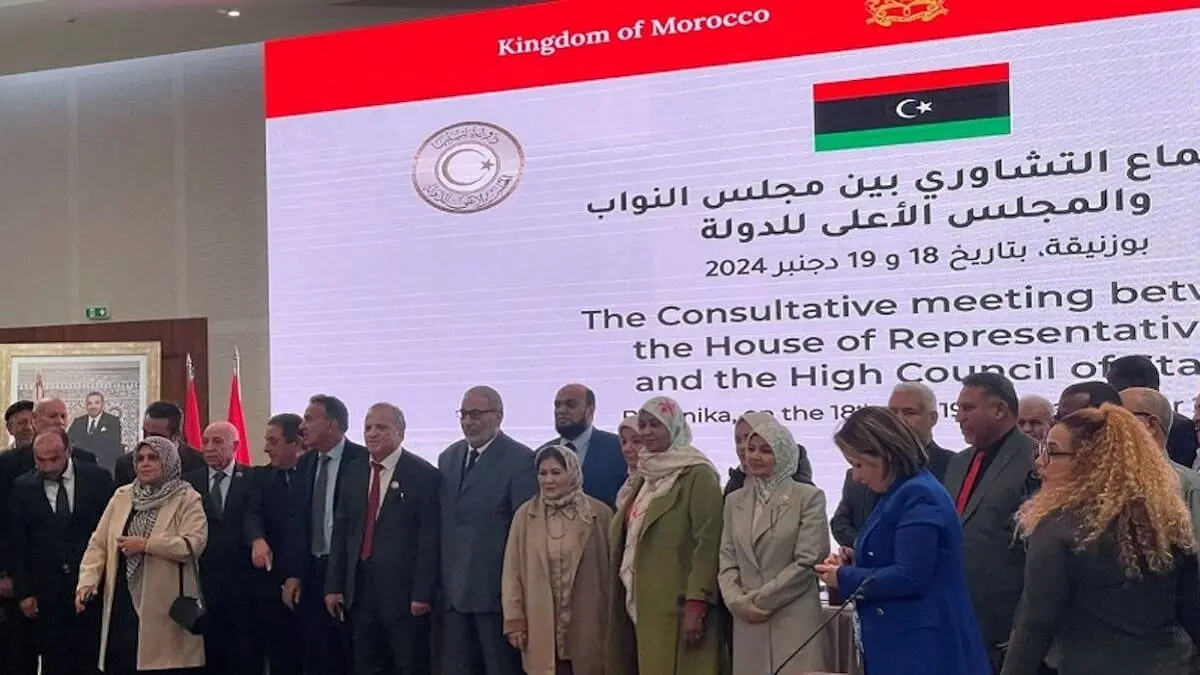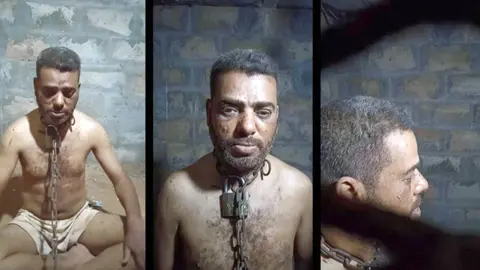For these reasons, Libyans trust in Moroccan wisdom

The Special Representative of the United Nations Secretary-General in Libya, Hannah Tetteh, could not have finalised the new roadmap to be announced on 21 August without visiting Rabat and presenting her proposals to the Kingdom of Morocco as one of the most prominent centres for regional and international decision-making, and as an important reference point for understanding the Libyan reality and managing dialogue between the Libyan parties, and without benefiting from Morocco's perspective on the insightful vision of King Mohammed VI, which has always been admired and appreciated by the Libyan parties and the focus of international actors.
Tetteh expressed her great appreciation for Morocco's role in facilitating dialogue between the Libyan parties, praising Rabat's continued support for the efforts of the United Nations Mission and its contribution to achieving progress at crucial stages of the political process. After her meeting with Moroccan Foreign Minister Nasser Bourita in the capital Rabat, she stressed that Libya was going through a delicate stage characterised by security tensions and complex local elections, noting that the Mission is working to formulate a new political roadmap, with the support of Morocco and the international community.
What the international envoy to Libya heard this time in Rabat is almost the same as what she heard before, taking into account the time difference and developments on the ground, as King Mohammed VI's policy towards Libya has always tended to focus on ensuring the interests of the Libyan people and the unity of the state and society, extending security and stability, and pressing for the restoration of state sovereignty, achieving social reconciliation and providing the right conditions for organising elections that respect the will of the Libyan people and replace the ammunition box with the ballot box.
During the 14 years of the Libyan crisis, it became clear that Morocco's role was rooted in reality and expressed the aspirations of the Libyan people. Indeed, the Moroccan leadership always viewed these aspirations as a determining factor in its policies, positions and vision for a political solution in the brotherly country.
Looking at the Kingdom's positions and role, it is possible to note a number of important observations, including:
First: Morocco deals with the situation in Libya with a clear and wise political and social vision, which has made it a source of trust among the various parties, and even a refuge for them to engage in dialogue and manage their differences in a positive spirit. This happened during the Dialogue Conference in Skhirat, which resulted in the political agreement announced on 5 December 2015, which brought the country out of civil war, and the meeting of members of the House of Representatives in Tripoli and Tobruk in the city of Tangier, which ended with the agreement to hold a session of the Assembly in the city of Ghadames immediately after their return, to approve everything that would end the division in the council and enable it to fulfil its quotas to the fullest, in the first step towards unifying the legislative institution, while recognising that the constitutional seat of the House of Representatives is the city of Benghazi.
The city of Bouznika was also a decisive station on the path of political dialogue and the guarantee of civil peace in Libya, demonstrating the ability of Moroccans to play an active role in extinguishing the fire of confrontation between Libyans. On several occasions, the Kingdom's soil has been a warm tent for secret meetings between the Libyan parties to discuss outstanding issues and options for resolving the crisis, securing the interests of the state and breaking the deadlock in which the country has been mired since 2011.
Second: Libyans are well aware that the Kingdom distances itself from all parties and welcomes them without questioning their political, geographical or cultural identities, not only out of a sense of duty towards their brothers, but also out of a spirit of pure affection that stems from the bonds of history, culture, moral and humanitarian values, and the absolute belief that the two countries do not only belong to a geopolitical space or a single geographical expanse, but, more importantly, to a single future that is in the interest of future generations and requires full coordination and integrated efforts to enshrine the language of reason and the principle of solidarity. Therefore, the Moroccan leadership firmly defends Libya's unity and sovereignty over its borders, capabilities, present and future.
Morocco's Minister of Foreign Affairs, African Cooperation and Moroccans Abroad, Nasser Bourita, successfully conveyed the royal vision when he emphasised that ‘Morocco, under the leadership of King Mohammed VI, maintains firm positions that do not change with the change of events or contexts towards the Libyan file,’ adding that ‘the Kingdom of Morocco supports the stability and unity of Libya, which it considers an extension of its own stability and unity, and also emphasises that the solution to the Libyan crisis must be within the framework of a Libyan-Libyan dialogue, far from external influences and pressures’.
Bourita emphasised during the consultative meeting between the Libyan House of Representatives and the Supreme State Council in the city of Bouznika that ‘Morocco is keeping pace with the Libyans and providing them with a broader space for dialogue among themselves to achieve progress on their country's political path.’
He also made an important observation, namely that there is satisfaction among Libyans about holding meetings in Morocco, given the approach adopted by the Kingdom of Morocco to the directives of King Mohammed VI towards the Libyan issue from the outset, which is based on non-interference in Libyan affairs, respect for the will of the Libyan people and support for all options of the legitimate Libyan institutions to move forward in resolving the crisis in this country.
Third: since 2011, the Kingdom has adopted a positive neutrality in its view of the crisis and its treatment of the vocabulary of the Libyan reality, and since the beginning of the events it has been calling for the implementation of the logic of reason and recourse to peaceful solutions and blocking the path to foreign interventions, regardless of their regional or international source. Morocco is not known to have supported one team against another, but has always emphasised that it looks primarily to the interests of the Libyan people, supports all those who reject chaos, resist terrorism, believe in dialogue, call for national reconciliation and confront the culture of exclusion.
The respect of Libyan leaders for the Moroccan position is what made them refuse to participate in any attempt to erase the dream of the peoples of the Maghreb and work to establish an alternative entity with narrow calculations.
What highlights the relevance of the Moroccan position is that it comes from outside the circle of the struggle for influence in Libya or acting out of greed and harassing its borders and wealth, which makes Libyan parties come together, despite their differences, to respect, appreciate and value the role and position of the Moroccans.
The Speaker of the Libyan House of Representatives, Aqila Saleh, considered that Morocco's role in the Libyan crisis is clear and frank, adding: ‘We will not dispense with Morocco's role because of its international status and its continued support, and this is something we do not doubt, and we continue to do so.’
‘Morocco's role was decisive in bringing together the views of the various Libyan parties and reaching consensus that would pave the way for a final political solution to the crisis,’ said Prime Minister Khaled Al-Mashri.
Libyan political activists of various orientations do not hide their admiration for the ability of King Mohammed VI's royal diplomacy to deal with the situation in their country with great wisdom, rationality and moderation, and this idea is reflected in the Libyan street, which does not hide its great appreciation for the Kingdom's policies towards their homeland.
It is also the respect of Libyan leaders for the Moroccan position that made them refuse to participate in any attempt to erase the dream of the peoples of the Maghreb and work to establish an alternative entity with narrow calculations. In April 2024, the envoy of the Presidential Council arrived in the Moroccan capital, Rabat, carrying a written message from the Council's president, Mohamed Al-Manfi, implicitly confirming that Tripoli has not played and will not play any negative role that could undermine the unified construction of the Maghreb with its five sides, and will not host any summit that could flow in this direction.
This came after Moroccan Foreign Minister Nasser Bourita received the exile on Tuesday in the Moroccan capital, Rabat, according to the official Moroccan news agency, without further details on the content of the letter.
Perhaps the exile remembers well the text of the message he received after taking power in February 2012 from King Mohammed VI, who at the time confirmed his country's support for the new executive authority in Libya for the success of the transition phase in the country, and announced ‘Morocco's customary support for all measures and efforts undertaken to address the challenges facing Libya in order for this critical stage to be successful,’ recalling ‘the importance the Kingdom attaches to strengthening relations with Libya in various fields.’
During the 14 years of the Libyan crisis, Morocco's role proved to be in tune with reality and expressed the aspirations of the Libyan people. Indeed, the Moroccan leadership always viewed these aspirations as a determining factor in its policies, positions and vision for a political solution in the brotherly country. On this basis, it built bridges of effective communication with Tripoli and Benghazi, did not exclude any political party from its contacts, and expressed its readiness to support Libya and assist it in facing challenges such as the war on terrorism, the unification and restructuring of institutions, the development of government performance and the advancement of the development process.
It was also ready at all times to intervene positively when asked to overcome some differences between components of society, similar to the Amazigh crisis with the central government, which can only explain the trust that the Kingdom enjoys within the Libyan space in its political, social and cultural dimensions, which are largely due to the wisdom of King Mohammed VI and the political ethics adopted by his diplomacy in reading reality, analysing events and evaluating positions.
Article published in The Arabweekly



